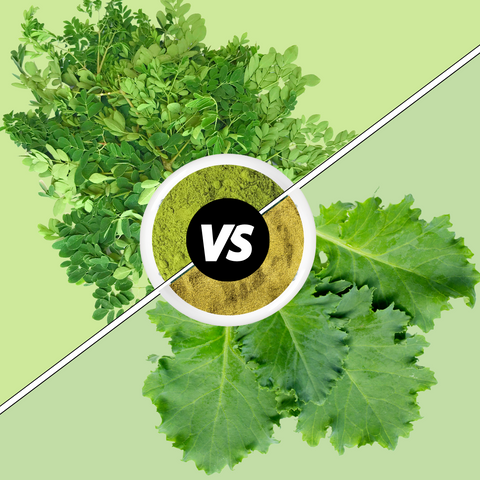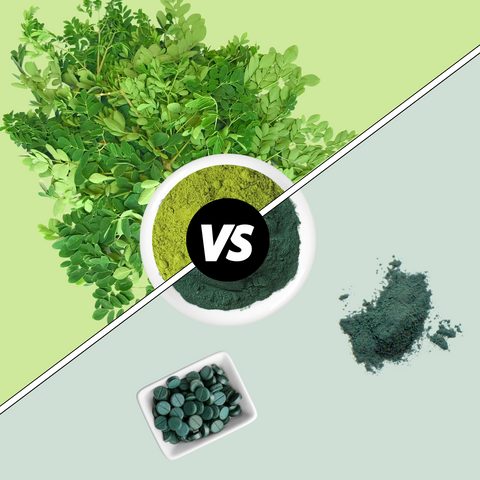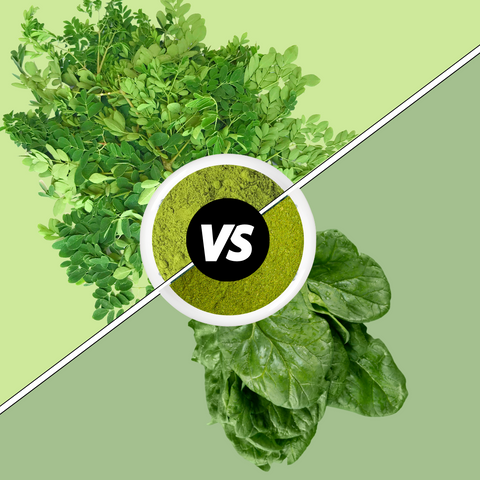Introduction
In the ever-evolving world of nutrition, there is always a new superfood on the block, claiming to be the key to a healthier lifestyle. In recent years, two green powerhouses have garnered considerable attention: kale and moringa. These leafy greens are packed with nutrients and are celebrated for their numerous health benefits. Today, we'll delve into the details to help you understand the nutritional value of each and why moringa might just be your new go-to green.
Kale: The Nutrient-Dense Green
Kale has certainly made a name for itself as one of the most nutrient-dense vegetables on the planet. It's loaded with vitamins, minerals, and antioxidants, making it a staple in many health-conscious diets.
- Vitamins Galore: Kale is rich in vitamins A, C, and K. These vitamins play key roles in maintaining healthy vision, boosting the immune system, and aiding in blood clotting, respectively.
- A Fiber Kick: With its high fiber content, kale supports healthy digestion and can help in maintaining a feeling of fullness, making it a great choice for those looking to manage their weight.
- Antioxidant Powerhouse: Kale is packed with antioxidants, including beta-carotene and flavonoids, which help to combat inflammation and oxidative stress in the body.
Moringa: The Nutritional Powerhouse
Moringa, often referred to as the "drumstick tree" or the "miracle tree," is a lesser-known but equally impressive contender in the world of superfoods. This plant is rich in vitamins, minerals, and other beneficial compounds.
- Protein Packed: Moringa is unique among greens because it is a significant source of plant-based protein, containing all nine essential amino acids. This makes it an excellent choice for vegetarians and vegans.
- A Multivitamin in a Leaf: Moringa contains substantial amounts of vitamins A, C, and K, similar to kale. But it doesn't stop there; it's also a source of B vitamins, including B6 and folate, which are essential for energy metabolism and overall well-being.
- Mineral Bounty: Moringa is exceptionally rich in essential minerals such as iron, calcium, and magnesium, which are crucial for strong bones and overall health.
- Antioxidant Arsenal: Just like kale, moringa boasts a treasure trove of antioxidants, including quercetin, chlorogenic acid, and beta-carotene, which help reduce oxidative stress and inflammation in the body.
So, Which One Should You Choose?
Both kale and moringa offer remarkable health benefits and can be included in your diet. The choice between them might depend on your specific nutritional needs and personal preferences.
Kale is a local favorite and is often readily available in many grocery stores. It's a great addition to salads, smoothies, and can even be baked into crispy kale chips.
Moringa, on the other hand, may not be as widely accessible, but its impressive nutritional profile makes it worth seeking out. Moringa can be consumed as a powder, in teas, baked goods, added to your daily smoothie, and sprinkled on meals for an extra nutritional kick.
If you're looking for a green that provides not only vitamins and antioxidants but also a protein boost, moringa is the clear winner.





